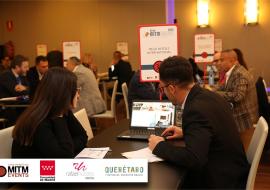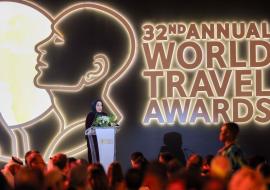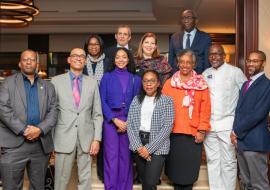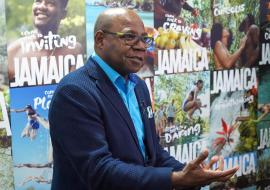Hotusa Explora Rolls Out the Red Carpet for FITUR 2023
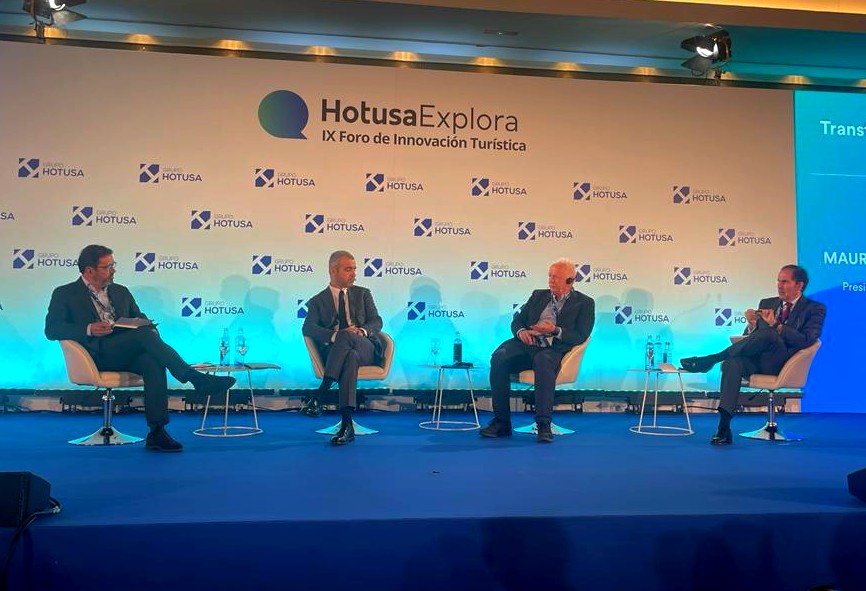
Madrid hosted the 9th edition of Hotusa Explora, the Tourism Innovation Forum, an event considered the threshold to FITUR, which brings together business experts to discuss the challenges facing the tourism industry in the future.
The event was inaugurated by Marina López, corporate director of the Hotusa Group, Amancio López, president of the Hotusa Group, and José Luis Martínez-Almeida, mayor of Madrid. During her speech, the director wanted to highlight that "2022 has not only been the year of recovery, but we could define it as an exceptional year, comfortably exceeding the expectations of a somewhat more gradual reactivation that we had hoped for".
However, this contrasts with "the great threats and uncertainties that loom over 2023", in reference to difficulties such as the energy crisis, the war in Ukraine or the worrying data on infections coming from China. "What counts in organizations is what remains. We should ask ourselves what will not change. The 'era of the inconceivable' should be an opportunity for organizations," said Marina López.
For his part, Amancio López, president of the Group, stressed that "tourism contributes in a decisive way to the modernization of cities". In this sense, "Spain has great strengths, such as safety in the streets, in hospitals and in the legal system". He did not hesitate to emphasize that "tourism is really important not only for Spain, but also for Europe, and it will become more and more important".
The mayor of Madrid, José Luis Martínez-Almeida, made an appearance to highlight the importance of tourism in maintaining the Spain brand. "In terms of tourism, we have reached cruising speed, but we must continue to grow". In that sense, Madrid "bets more on high-impact tourism, quality tourism, than on numbers". Martínez-Almeida claimed that the Spanish capital has been nominated for the fourth consecutive year as the best city in the world in the field of business tourism, in addition to the fact that Madrid is among the four best urban tourist destinations in the world.
After the inauguration, the first panel of the day brought together Carmen Martínez Castro, journalist and former Secretary of State for Communication, Héctor Florez, President of Deloitte Spain, Manuel Pérez-Sala, President of the Círculo de Empresarios, and Álvaro Nadal, former Minister of Energy, Tourism and the Digital Agenda, who debated the keys to greater competitiveness in the tourism sector. Each of them had the opportunity to share their vision on this issue, which allowed to know what are the trends in tourism.
If Álvaro Nadal placed the current objective in the process of demand recovery, but struggling at the same time in the face of rising costs in energy and labor, Pérez Sala focused the needs for the sector on three areas: "addressing innovation, insisting on training and making tourism a sustainable activity."
For Héctor Florez, the challenge lies in "balancing growth and transformation," that is, "driving value growth and promoting new business models, so as to attract customers with greater purchasing power. We need to achieve greater investment capacity for transformation".
They also had the opportunity to discuss other relevant issues within the sector, such as the necessary search for talent to add value to the industry, the development of digital tools, the improvement of the cost structure or the adequacy of the tourism offer in cities, in relation to aspects such as security, connectivity or green spaces.
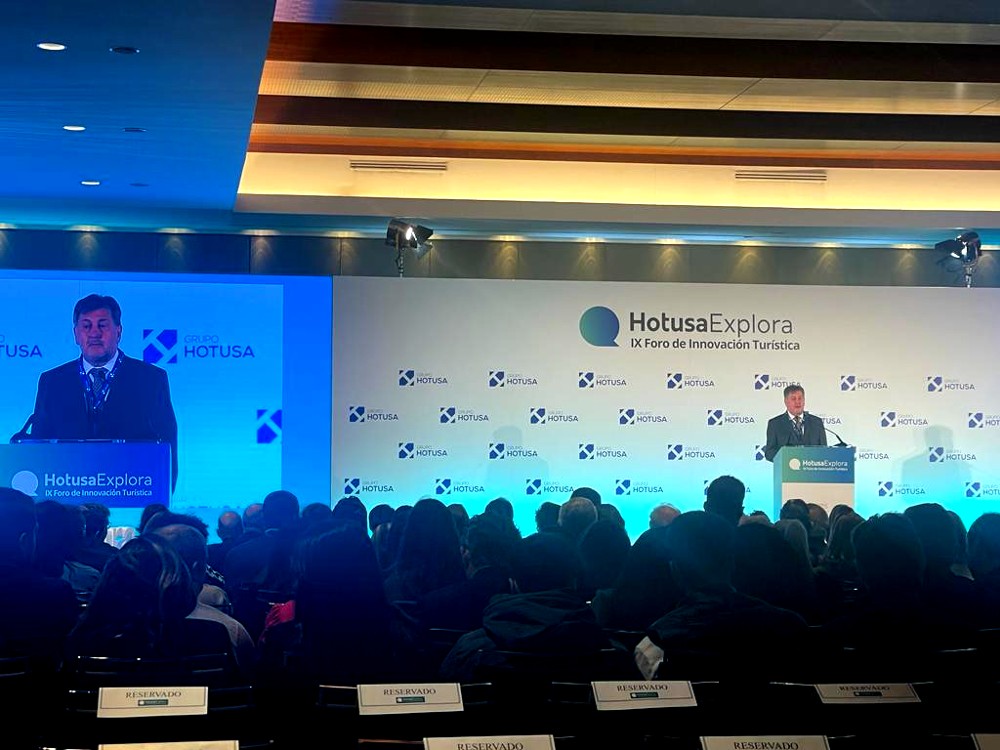
Important personalities within the air transport sector, such as Javier Gándara, CEO of EasyJet, Maurici Lucena, president of Aena, Eddie Wilson, CEO of Ryanair and Javier Sánchez-Prieto, president of IBERIA, took over to discuss the transformation and future of air transport.
The speakers presented their views on some of the challenges facing this sector, such as the apparent acceleration of a consolidation process, the diversification of destinations, intermodality with other means of transport or the challenge arising from the energy transition.
Eddie Wilson, CEO of Ryanair, expressed his confidence regarding the current year, stating that "in Spain, we have a good foundation for growth. We expect to grow by 10% here, which means a 20% recovery compared to the pre-pandemic period". However, he stressed that difficulties such as the war in Ukraine could jeopardize this good forecast for 2023.
For his part, the president of IBERIA focused on the importance of vindicating the sector, since "it is not easy to achieve what has been achieved. What has happened in Spain has not happened in all countries. We must vindicate our industry and the professionals who work in it". Along these lines, Ryanair's CEO pointed out that "the tourism sector has joined forces in Spain and this is a big difference with respect to other European countries where everything has been more chaotic. This will have an impact on the results in 2023".
According to Sánchez-Prieto's data, with respect to 2019, IBERIA has recovered 85% of the activity, although at the end of the year it was at the same levels as in that year, and the company has managed to recover all destinations in Latin America and grow in the United States. "We are optimistic about 2023 for three reasons: there is no deterioration in demand, market dynamics are changing and this means new opportunities, and the travel spending forecast has been maintained," he said.
Maurici Lucena, president of Aena, declared that "it has been a great year in terms of air transport, as we have been the European country that has experienced the greatest recovery in air traffic". However, he explained that other factors such as the presence of the ERTEs or the importance of the tourism sector for Spain have been essential for this recovery of the airline industry. "The prospects for the current winter season are good and we expect to reach 300 million passengers in 2026," Lucena pointed out.
There was also space to discuss other issues facing the sector, such as airport tariffs, decarbonization and environmental transition. Regarding the former, Lucena pointed out that airport tariffs in Madrid and Barcelona are 50% cheaper than similar ones in Europe, and that AENA will keep them frozen until 2026. Regarding the second, he pointed out that "decarbonization is a colossal and obligatory challenge. Air transport also has to address it". However, he stressed that the debate on this issue must be "informed and honest".







